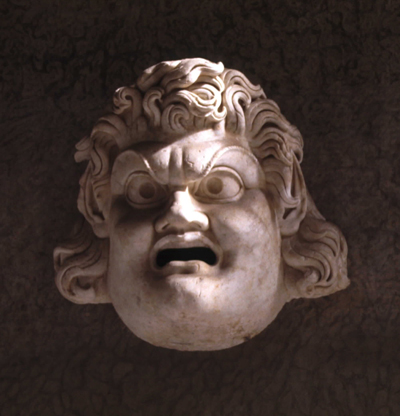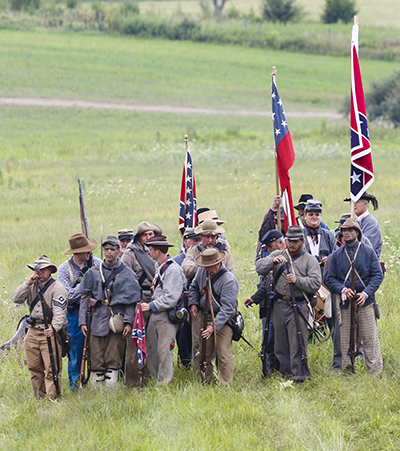The Human Condition:
Allocating Scarcity – May 26, 2019

|
In economics, the primary facts of life—and the first set of curves you learn—involve supply and demand. The value of any good or service is fixed by the intersection of the supply curve, from great availability to great scarcity, with the demand curve, from scant interest to intense need or desire. Dirt is of little value, because you can pick it up anywhere and nobody—other than gardeners, and they require a special quality of organic content—has much use for it. Diamonds have great value because they are relatively rare and almost everybody—at least those who love jewelry or seek a store of value—wants one. The physical space where supply curve (the seller) and the demand curve (the buyer) meet is called a marketplace.
One of the enduring problems of human society is how to allocate scarce and highly desirable goods and services. A system of pure barter doesn’t cut it. How many bushels of wheat must a farmer grow to trade for a diamond to put on his fiancé’s finger? And what is the local jeweler going to do with the suddenly acquired hundreds or thousands of bushels after the exchange is made? To facilitate the trade, human societies almost immediately invented the monetary system, establishing physical markers to represent relative value. And those values, again, were set by supply and demand. Diamonds trade for a lot of markers; bushels of wheat trade for comparatively less—unless there’s a farming crisis and famine, in which case wheat might trade like diamonds because everyone has to eat.
Interestingly, it doesn’t matter what the markers are made of. Gold and silver coins have worked for some societies, because their metal content is relatively rare and desirable and so represents a store of innate value. The tribes of eastern North America used beads made from white and purple shells, called wampum, that traded like money—having innate value only because the purest colors were relatively hard to find and the beads were pretty. The Chinese emperors from the 4th century BC to the 20th AD struck copper and bronze coins, called cash, that had value only because the government would redeem them. And the Chinese were the first to use paper printed with special markings as money. The point is, money has value because other people will accept it in exchange for goods and services.
In the Star Trek universe, there is no scarcity. All the energy a space-faring society could need is supplied by matter-antimatter reactions. All the goods they want are provided by pattern replication, from food and clothing to formed metals, and presumably gold and industrial diamonds—everything, curiously, except for the dilithium crystals needed for the energy conversion. Those crystals have to be mined and traded. And in Star Trek they don’t use money, either. All the matter-antimatter converters are presumably owned collectively and the replicators are found everywhere. I suppose people might make some kind of living by inventing and selling unique replicator patterns: a new flavor of ice cream or a new kind of fabric for clothing. But no one aboard the Enterprise seems to be dabbling in this, and they would probably give the patterns away for free as a community good.
The existence of scarcity and the rise of market values and money systems driven by need or desire bother many people. Inevitably, throughout history, those who have been able to garner and stockpile scarce or desirable commodities, or the value markers needed to buy them, have gained power over others in their society. And, always, this garnering and stockpiling have carried the whiff of unfair practice. The person who saves up canned goods and water in a time of disaster, when their neighbors are starving and thirsty, and will only trade them for more money than they can command in good times, is generally despised as a hoarder. The person who gets a government contract to operate iron and bauxite mines in wartime and to build tanks, planes, and ships, while everyone else is scrimping and saving under government rationing, is regarded as a profiteer. Even the movie producer who creates a colorful fantasy full of imaginary lust and action and then, through advertising and the manipulation of public tastes, convinces millions of teenagers to part with their $10 for two hours of vacant, mind-numbing entertainment, is regarded with suspicion.
At various times in our history, small societies have tried through enforced sharing to overcome the advantages some people may gain from scarcity and the opportunities they can reap by manipulation. The feudal manor and the Israeli kibbutz are such places. The cobbler in the manor does not trade the shoes he makes for a certain amount of the farmer’s wheat; he just commits to make shoes for anyone in the community who needs them and then takes his share of the community’s supply of food, housing, and clothing. The same for the miller and baker, the mason, and the weaver. If the community is self-sustaining in the raw materials required to support this communal exchange, everyone is happy. If the community lacks some things—for example, not enough cowhide from the current consumption of beef to provide leather for all the shoes that are needed—then people may do without, or wear last year’s shoes, or go barefoot when the season allows. Fat times and lean are amicably shared.1
All of this works on the small scale, where everyone in the manor, village, or kibbutz knows everybody else. People in these close-knit communities don’t have to look at their neighbors’ dinner tables to see what they’re eating, at their feet to see what they’re wearing, and in their cellars to see if they are hoarding either food or shoes.
But once your society grows larger than, say, the county level, things start to change. Then you don’t know what other people far away have or need, or what their advantages and disadvantages are, and whether or not they may be hoarding the goods you require to survive. The human impulse to share dwindles remarkably the farther you move beyond family, friends, and neighbors. The willingness to sacrifice and do without for the presumed benefit of strangers is not part of the human psychological makeup.
Marx thought that in the perfect society, once the lesson of “From each according to his ability, to each according to his needs” had been learned and absorbed into the human psyche, the need for a state to direct allocation of resources would wither away. People would just go on indefinitely producing whatever they could, sharing the abundance in good times, and enduring their hunger pangs in lean times.2 But human nature does not change with a few economic slogans—or with an armed revolution, state enforcement of quotas, and the liquidation of recalcitrant classes.
Every system of distribution that tries to ignore market values and monetary systems, and that grows bigger than a small town, requires a stern hand to measure regional and national need, set production quotas, and align distribution. And there are two problems with this.
First, it makes no allowance for human variability, for differences in taste and perception. “You like pistachio ice cream, comrade? Too bad, because the popular flavors—and all we have the resources to make—are chocolate and vanilla.” People in the aggregate are numbers, ciphers, zeroes, not real human beings with actual likings and loathings. In a marketplace with available capital in the form of unallocated money, someone would be inspired to figure out the percentage of people who actually like and would be willing to pay a bit extra for pistachio ice cream, then he would build a plant to make enough to serve their desires. That inspiration would create a market niche, provide jobs, and make people … happy. But in a socialist state with production experts and yearly quotas, everyone is overworked just trying to figure out how much chocolate ice cream to make and ship to California—if we even have enough dairy production in Minnesota to support such a frivolous commodity, let alone the refrigeration capacity to keep it cold in the summer—to bother with any marginal taste groups.
Second, those production experts and planners are human beings, too. Even when their work is supported by spreadsheets and computers, they are susceptible to the same frailties and failings as anyone else. The inspiration to make a market niche in pistachio ice cream wouldn’t occur to them, because the state and the other production planners would not let them benefit from the impulse to serve that market segment. Worse, they could too easily see that what would benefit them was offering a small favor to, and accepting a small gratuity from, a particular industry or region or segment of society. It is human nature to look out for oneself, one’s family, and one’s friends before taking care of some hypothetical public good. Unless the production and distribution are run by wholly artificial means—computer intelligences, dispassionate angels, or clockwork mechanisms—the possibilities and opportunities for graft and favoritism will undermine the purest instincts toward fairness and equality.
Scarcity will always exist. Even in a world of unlimited energy generation and pattern replication, there will still be material goods like artworks and handicrafts, services like medical specialties and innovations, and experiences like ziplining through the rainforest or trekking to the peak of Mount Everest that someone will want more than anything else and more than his neighbors might want. There will always be objects of desire that people will crave and fight for, no matter how stoic and rational they are supposed to be.
The only way to accommodate human needs and desires fairly, in a way that will make people happy, is to let the marketplace work. Let people make decisions for themselves about what they will value in life, how hard they want to work for it, and how they will spend their money. Do we occasionally need a regulating hand to see that some people without resources are not left to each out of dumpsters or starve? Of course, that is the purpose of the safety net, and no one disagrees with it. But there is a huge economic leap from letting public servants watch the marketplace and occasionally make necessary corrections—to giving them total control of the whole mechanism.
Scarcity exists not only in the belly or in physical resources. It also exists in your mind and your desires. And that is a corner of the world and the human spirit that no dispassionate, socialist governmental structure can reach or touch—or satisfy. Nor should it try.
1. And no one in these communal societies needs luxuries like gold and diamonds—except the feudal lord, who can always go raiding for them. If the community does come upon such valuables, the people generally consent to use them to decorate and enrich the local church rather than bedeck only a select few members with jewelry.
2. And note that Marx predicated this method of distribution on the abundance that would be created by “unfettered” production in a fully developed socialist society—presumably without the restraints on labor placed by limited capital, human laziness, and human greed, “after labor has become not only a means of life but life’s prime want.” If this isn’t magical thinking, I don’t know what is.


